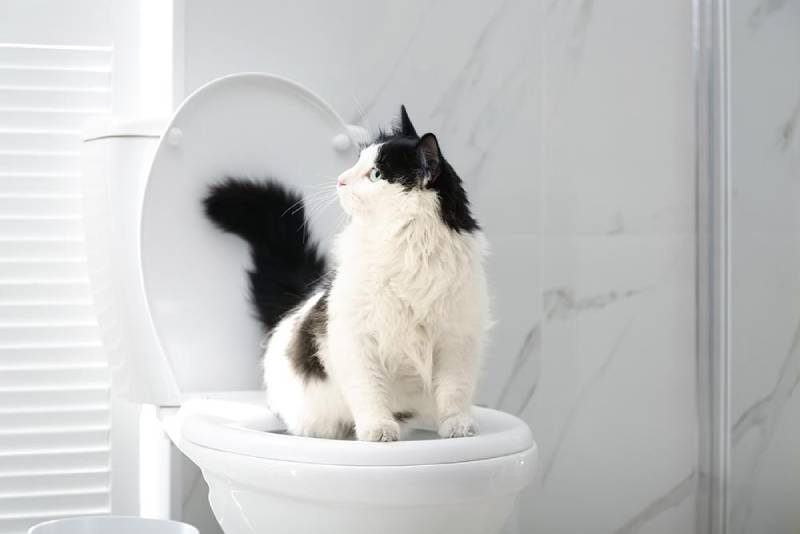Don't Flush Cat Poop Down Your Toilet - Preserve Your Home's Pipe Integrity
Don't Flush Cat Poop Down Your Toilet - Preserve Your Home's Pipe Integrity
Blog Article
Everyone is bound to have their own theory when it comes to How to Dispose of Cat Poop and Litter Without Plastic Bags.

Intro
As pet cat owners, it's necessary to bear in mind exactly how we dispose of our feline buddies' waste. While it may seem hassle-free to purge pet cat poop down the bathroom, this practice can have detrimental consequences for both the atmosphere and human wellness.
Alternatives to Flushing
Luckily, there are much safer and more accountable means to deal with pet cat poop. Consider the following options:
1. Scoop and Dispose in Trash
One of the most typical approach of getting rid of pet cat poop is to scoop it right into an eco-friendly bag and throw it in the trash. Make certain to make use of a specialized litter scoop and get rid of the waste without delay.
2. Use Biodegradable Litter
Choose naturally degradable feline clutter made from materials such as corn or wheat. These clutters are eco-friendly and can be securely thrown away in the trash.
3. Hide in the Yard
If you have a lawn, take into consideration hiding pet cat waste in a marked location far from vegetable yards and water sources. Be sure to dig deep adequate to avoid contamination of groundwater.
4. Install a Pet Waste Disposal System
Buy a family pet garbage disposal system specifically made for cat waste. These systems utilize enzymes to break down the waste, lowering odor and ecological effect.
Health and wellness Risks
In addition to environmental concerns, flushing cat waste can additionally posture health and wellness dangers to humans. Pet cat feces may include Toxoplasma gondii, a bloodsucker that can cause toxoplasmosis-- a possibly serious disease, particularly for expectant females and people with weakened immune systems.
Ecological Impact
Purging pet cat poop introduces damaging microorganisms and bloodsuckers right into the supply of water, posing a considerable threat to marine ecological communities. These impurities can adversely affect marine life and compromise water quality.
Conclusion
Responsible pet ownership prolongs past giving food and sanctuary-- it additionally involves proper waste management. By refraining from purging pet cat poop down the commode and going with different disposal techniques, we can lessen our environmental footprint and protect human health and wellness.
Why You Should Never Flush Cat Poop Down the Toilet
A rose by any other name might smell as sweet, but not all poop is created equal. Toilets, and our sewage systems, are designed for human excrement, not animal waste. It might seem like it couldn’t hurt to toss cat feces into the loo, but it’s not a good idea to flush cat poop in the toilet.
First and foremost, assuming your cat uses a litter box, any waste is going to have litter on it. And even the smallest amount of litter can wreak havoc on plumbing.
Over time, small amounts build up, filling up your septic system. Most litter sold today is clumping; it is made from a type of clay that hardens when it gets wet. Ever tried to scrape old clumps from the bottom of a litter box? You know just how cement-hard it can get!
Now imagine just a small clump of that stuck in your pipes. A simple de-clogger like Drano isn’t going to cut it. And that means it’s going to cost you big time to fix it.
Parasitic Contamination
Believe it or not, your healthy kitty may be harboring a nasty parasite. Only cats excrete Toxoplasma in their feces. Yet it rarely causes serious health issues in the cats that are infected. Most people will be fine too if infected. Only pregnant women and people with compromised immune systems are at risk. (If you’ve ever heard how women who are expecting are excused from litter cleaning duty, Toxoplasma is why.)
But other animals may have a problem if infected with the parasite. And human water treatment systems aren’t designed to handle it. As a result, the systems don’t remove the parasite before discharging wastewater into local waterways. Fish, shellfish, and other marine life — otters in particular — are susceptible to toxoplasma. If exposed, most will end up with brain damage and many will die.
Depending on the species of fish, they may end up on someone’s fish hook and, ultimately on someone’s dinner plate. If that someone has a chronic illness, they’re at risk.
Skip the Toilet Training
We know there are folks out there who like to toilet train their cats. And we give them props, it takes a lot of work. But thanks to the toxoplasma, it’s not a good idea.

I came across that piece on Don’t flush cat feces down the toilet while doing a search on the web. Feel free to take the time to distribute this content if you enjoyed reading it. Thank-you for taking the time to read it.
Click Here Report this page